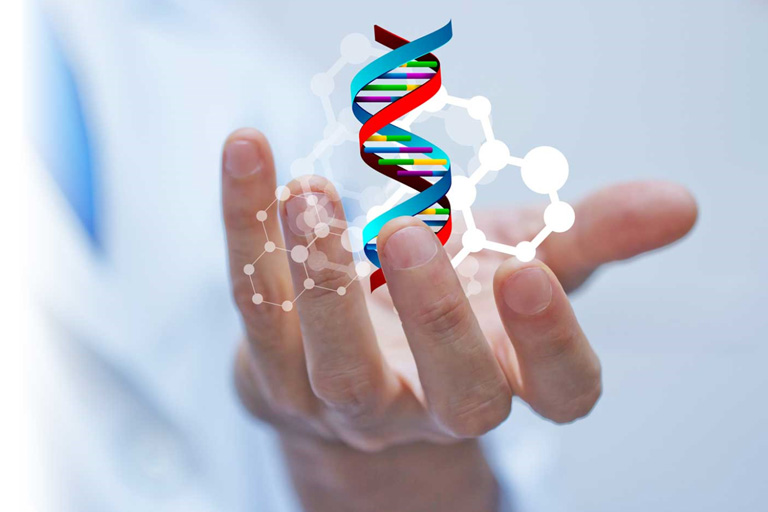Stanford scientists and their collaborators have identified two key genes responsible for the rapid growth of deer antlers. They hope their insights will open the door to new approaches for treating bone diseases and fractures.
Each spring, male deer sprout a new pair of antlers, which are essentially temporary external bones, at a speed unparalleled by the bone growth of other mammals. Now, research led by scientists at the Stanford University School of Medicine has identified two genes that drive the animals’ abnormally quick bone generation.
Although the research is still in its early stages, the scientists hope the findings could one day inform more efficient and effective therapies for bone diseases and fractures in humans.
“Right now, we have two focuses: To understand the genetic regulation of deer antler growth, and to see if we can use this information to build therapeutic agents to potentially prevent or treat bone diseases such as osteoporosis, or more quickly repair bone fractures,” said Peter Yang, PhD, associate professor of orthopedic surgery.
Antlers are essentially regenerating bone, which is rare in the animal kingdom. During the spring, antlers begin to sprout; by winter, they start to shed.
“Knowing the genetics behind antler regeneration, fast bone growth and mineralization is fundamental to our ultimate therapeutic goal and is critical to understanding rapid bone regeneration in other species, like humans,” Yang said.
The genes Yang and his collaborators identified are uhrf1, which supports rapid bone cell proliferation, and s100a10, which supports rapid mineralization, or the hardening of bone tissue. Together, the genes work in a one-two punch fashion, with uhrf1 purring bone cell generation and s100a10 working to cement the bone’s structural matrix.
What lends even more transformative potential to Yang’s research is that both uhrf1 and s100a10 are linked to bone development in humans.
A paper detailing the researchers’ findings was published online Oct. 30 in the Journal of Stem Cell Research & Therapy. Yang is the senior author. Postdoctoral scholar Dai Fei Elmer Ker, PhD, is the lead author.
Going stag
As an orthopedic researcher, Yang never planned to pursue deer antler genetics. But while on vacation in Alaska in 2009, Yang’s tour guide rattled off some fun facts about wild deer, and it piqued his curiosity.
“Deer antlers can grow a whopping 2 centimeters per day when it’s summertime and their antlers are growing at full speed,” Yang recalled from the guide’s spiel. “It made me wonder: Are there special genes that are behind this unusually fast bone growth?”

Vlad Sokolovsky/Shutterstock
To investigate, Yang and his lab traveled to a deer farm in California where they collected samples of early antler tissue, which is primarily made up of skeletal stem cells. Antlers grow from the top down; so as they grow upward, a reservoir of stem cells remains at the top of the antlers, continuing to proliferate. In early development, antler tissue is soft, much like the cartilage of your nose, making cell sampling an easy task for Yang and harmless for the buck. Only in the second stage of development does the antler mineralize and become rigid.
Back in the lab, the scientists used a variety of techniques to decipher the genetics behind antler growth, including analyses of RNA, a molecule that helps carry out specific gene instructions, and gene “knock-down” and “over-expression” studies, which hinder gene function or rev it up, respectively. Comparative RNA analyses between stem cells in deer antlers and human stem cells from bone marrow led Yang to a collection of genes that seemed to have a unique expression in antlers. From that pool, he narrowed the search by tampering with gene function, watching to see how different levels of gene expression affected tissue growth in mouse cells.
In deer antler cells, Yang saw that when the uhrf1 gene was decommissioned, the skeletal stem cells could still grow, just not as quickly; only when uhrf1 was fully functional did the scientists see the rapid cell proliferation characteristic of antler growth. Likewise, when s100a10 was overexpressed, calcium deposits increased and the engineered cells more rapidly mineralized.
“Antler regeneration is a unique phenomenon that, to me, is worth studying just out of pure curiosity, but lo and behold, it may have some really interesting applications for human health,” Yang said.
Applying antler genetics to humans
The researchers hope that their insights into antler genes might inform new approaches for treating diseases like osteoporosis. In healthy bones, two types of cells — osteoblasts and osteoclasts — work as opposing forces. Osteoblasts produce new bone tissue, while osteoclasts break down old bone. The two cell types work in a yin and yang style to continuously form and degrade bone to maintain balanced bone structure. In osteoporosis, osteoclast function overtakes osteoblasts, and the bone starts to break down.
“We’re just at the beginning of this research, but our ultimate goal is to figure out how we can apply the same underlying biology that allows for rapid bone regeneration in deer antlers to help treat human bone conditions, such as osteoporosis,” Yang said.
Yang plans to continue researching multiple kinds of deer to confirm that uhrf1 and s100a10 back speedy antler growth across species. In addition, he plans to test how the genes function in human cell lines, while continuing to parse how ufh1 and s100a10 work on a molecular level, looking into possible functional pathways.
“There’s a lot of work to be done, but this could be a unique model of bone regeneration, and our initial work here has started to lay a foundation for future studies,” Yang said.
Other Stanford co-authors of the paper are postdoctoral scholars Dan Wang, PhD, and Bin Zhang, PhD; Norma Neff, PhD, former DNA sequencing core director; former undergraduate researcher Rashmi Sharma; William Maloney, MD,the Boswell Chair of Orthopaedics and professor of orthopedic surgery; and Stephen Quake, PhD, professor of bioengineering and of applied physics and co-president of the Chan Zuckerberg Biohub.
Peter Yang is a member of Stanford Bio-X, the Stanford Cardiovascular Institute, Stanford ChEM-H, theStanford Child Health Research Institute and the Stanford Neurosciences Institute.
Scientists from the Tenth People’s Hospital of Tongji University, Calico Life Sciences and the State Key Lab for Molecular Biology of Special Economic Animals also contributed to the study.
The research was funded by the National Institutes of Health (grants R01AR057837, R01AR057837, R01DE021468 and S10RR027431) the Department of Defense, the Boswell Foundation and the AO Foundation.
Stanford’s Department of Orthopedic Surgery also supported the work.






























































